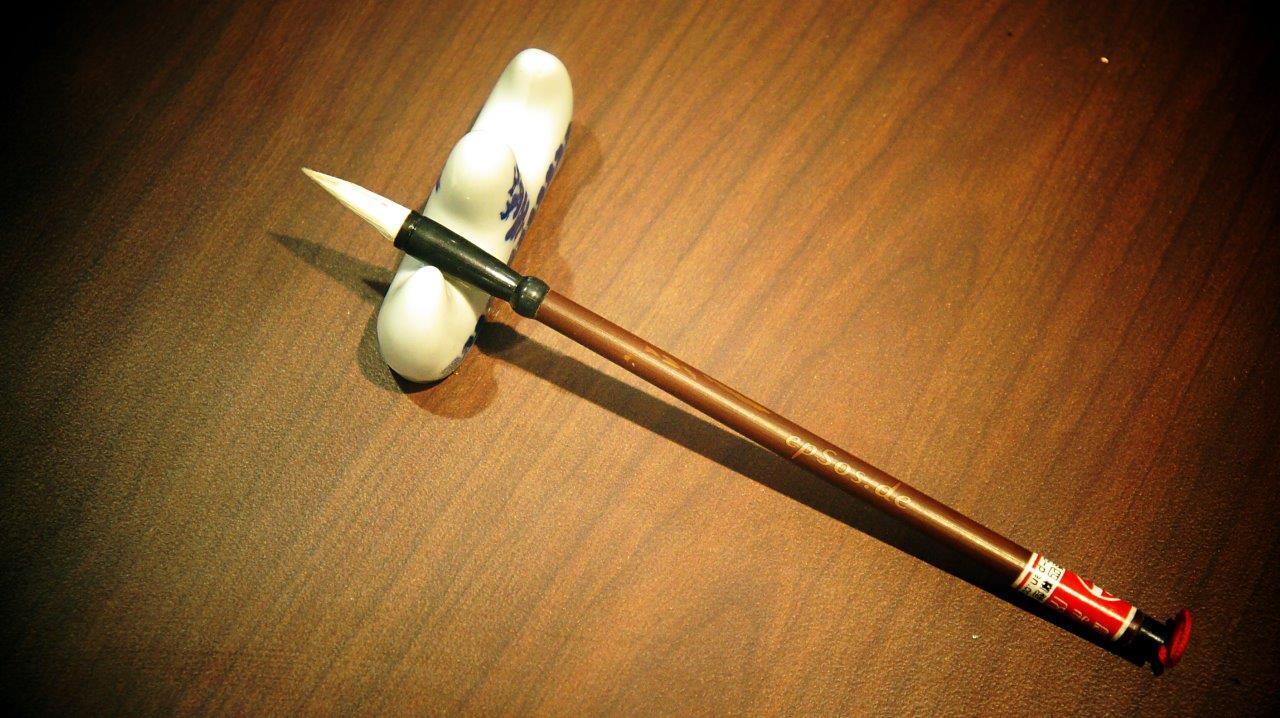The Best Chinese Words to Practice as a Beginner: The Definitive List Part 1

When it comes to learning a new language, one thing always comes up almost immediately: vocabulary. Students often wonder which words they should learn and how they can learn them in the best (read: the fastest) way possible.
What Chinese words are the easiest?
What Chinese words are the most important?
Any Mandarin Chinese teacher expects these types of questions and usually has a book or resource on standby. It’s to be expected really. Yet the best Chinese words to know are usually mixed in with a bunch of other vocabulary, some of which just isn’t needed by a beginner.
To help every Chinese language beginner out there, we’re gotten rid of what you don't need and put together a list of basic Chinese words and meanings for helping you to work on your pronunciation and make a good start in developing your second language skills.
Simply click on the numbers next to a word to listen to its pronunciation.
 ##The Best Words for Pronouncing Pinyin Initialsb – Like ‘b’ in ‘bat’
Like we talked about in the How to Speak Chinese - The Ultimate Guide to Chinese Pronunciation, in this case the b is your friend. It is the same as in English. You got the sound down. Check out these 100 words below to add to your starting vocabulary.
Example #1: Bu 不 - No
Example #2: Bao 包 – Bag
Example #3: Bangzhu 帮助 - Help
Example #4: Beijing 北京 - Beijing
Example #5: Ben 本 - Book
p – Like ‘p’ in ‘pants’
While Mandarin does have its difficult sounds, this is another one you can cross off the list as mastered. Make the Chinese ‘p’ the same way, except a little bit louder and you are good to go.
Example #1: Pǎo 跑 – Run
Example #2: pào 泡 - Bubble
Example #3: péngyǒu 朋友 - Friend
Example #4: lǎopó 老婆 - Wife
Example #5: pàng 胖 - Fat
m – Like ‘m’ in ‘mat’
Adding to your polished English skills, another easy one to transfer over to your Mandarin. Focus on these common words below and grow your vocabulary,
Example #1: mā 妈 – Mom
Example #2: má 麻 - Bother
Example #3: mǎ 马 - horse
Example #4: máfan 麻烦 - problem
Example #5: ma 吗 – Question Particle
f – Like ‘f’ in ‘fat’
Same as the English version.
Example #1: máfan 麻烦 – problem
Example #2: fù zé 负责 - be responsible for
Example #3: fēng kuáng 疯狂 - crazy
Example #4: Fúwù 服务- service
Example #5: Fāyá 发芽- germination
d – Like ‘d’ in ‘dad’
Again, same as English. Are you seeing a pattern yet? While there are many things to learn, it is also good to remember that you already have a good starting point and do not have to build your knoweldge from scratch.
Example #1: Dānxīn 担心 - worry
Example #2: Dōngxī 东西 - thing
Example #3: Dǔzi 肚子 - stomach
Example #4: Dōngtiān 冬天 - winter
Example #5: Dàmǐ 大米 - rice
t – Like ‘t’ in ‘tat’
Need I say it again? Stick to the English Pronunciation-and you'll be doing just fine.
Example #1: Tèbié 特别 - especially
Example #2: Táng cháo 唐朝 - Tang Dynasty
Example #3: Tōngguò 通过 - pass
Example #4: Tàidù 态度 - attitude
Example #5: Tāmen 它们 - it
l – Like ‘l’ in ‘like’
Same as English. Take in the words and keep building your personal dictionary.
Example #1: Liúlèi 流泪 - Tears
Example #2: Lāmiàn 拉面 - Ramen
Example #3: Luòyáng 洛阳 - Luoyang
Example #4: Lǎnduò 懒惰 - lazy
Example #5: Lǐ 李 - Li
g – Like a Soft 'g' in 'get'
Finally! Something similar, but with a small twist. While we voice the 'p' a bit louder, you'll want to make sure your 'g' is just a little bit softer in Mandarin pronunciation.
Example #1: Xiānggǎng 香港 - HongKong
Example #2: Gāoxìng 高兴 - happy
Example #3: Guòqù 过去 - past
Example #4: Guìhuā 桂花 -Osmanthus
Example #5: Guānxīn 关心 - concern
k - Like a Soft 'k' in 'kit'
You just got 'g', now apply those skills to 'k'. "K' should also be unvoiced. You should be feeling a puff of air escape your mouth when you pronounce 'k'. Try starting the sound in your mouth, not your throat.
Example #1: Kūnmíng 昆明 - KunMing
Example #2: Kǎpiàn 卡片 - card
Example #3: Kěyǐ 可以 - can
Example #4: Kuàilè 快乐 - happy
Example #5: Kuānróng 宽容 - tolerant
h - Like a Hard 'h' in 'huh?'
'H' is a bit different than 'g' and 'k' above because it does the opposite. While you have been softening your 'g' and 'k', your 'h' should actually be harsher. Imagine that something has surprised you and all you can say is 'huh?' in a rather force tone. We've all been there. Use that familiar feeling to add some more specific words to your growing data base.
Example #1: Héxié 和谐 - harmonious
Example #2: Yǒnghéng 永恒 - eternal
Example #3: Kāihuì 开会 - have meeting
Example #4: Hǎitān 海滩 - beach
Example #5: Húběi 湖北 - Hu Bei (1) (2)
.
x - Like a Soft 'sh' in 'sheet'a
This one can be a bit tricky. As we said in the Ultimate Guide, to make the 'x' sound, arrange your mouth as though you were about to make the 'sh' sound in English, and then lower your tongue to behind your bottom set of teeth. It'll take a bit of practice but you'll get there in the end.
Example #1: Xiàmén 厦门 - Xia Men
Example #2: Xiāngshuǐ 香水 - perfume
Example #3: Xiàtiān 夏天 - summer
Example #4: Xīnwén 新闻 - news
Example #5: Xuéxí 学习 - learn
q - Like a Mandarin 'x' But With a 't' First
To make the 'q', we are going to add a 't' infront of our Mandarin 'x'. Note that despitre what many say, the Mandarin 'w' is not the same and the English 'ch'. Bring your tongue a little bit more forward and touching your bottom set of teeth.
Example #1: Qǐng 请 - please
Example #2: Qiáng 强 - Strong
Example #3: Hóngqí 红旗 - red flag
Example #4: Qiānxū 谦虚 - modest
Example #5: Qúnzi 裙子 - skirt
j - Again With Your Tongue Down
As we continue to scaffold into the new sounds, draw upon your new found skills and familiarity with the Mandarin 'x' . Make sure to position your tongue behind your lower set of teeth and then try to pronounce the English 'j'.
Example #1: Jiànshè 建设 - Construction
Example #2: Jiāngjūn 将军 - General
Example #3: Jiějiě 姐姐 - sister
Example #4: Xǐjù 喜剧 - comedy
Example #5: Jǐ gè 几个 - several
zh - Like 'J' in 'Juice'
The 'zh' sound is going to be another old friend with a twist. Think of the English 'j' as your starting point, now make sure that you bring your tongue up to the roof of your mout. Take a few minute wrapping your mouth around this sound and you will be good to go, to keep building your vocab.
Example #1: Zhèn 镇 - town
Example #2: Zhāng 张 - Zhang
Example #3: Zhídé 值得 - worth it
Example #4: Zhùyì 注意 - note
Example #5: Zhuōzi 桌子 - table
ch - With A Tongue Curl
Curl your tongue towards the roof of your mouth again, to master the 'ch' and these high frequency words. Make sure to touch the roof with the tip of your tongue, and then let a small gap appear when you let the air escape.
Example #1: Chīfàn 吃饭 - eat
Example #2: Chūlái 出来 - come out
Example #3: Chéngshì 城市 - city
Example #4: Chūntiān 春天 - spring
Example #5: Qìchē 汽车 - car
sh - Like 'shhh' With A Forced Lisp
Curl your tongue towards the roof of your mouth once more, but leave a small gap. Once ready, gently go shhh as if you were quietly shushing someone in a library.
Example #1: Huángshān 黄山 - Huangshan
Example #2: Shàngwǔ 上午 - morning
Example #3: Shén 神 - God
Example #4: Shùxué 数学 - mathematics
Example #5: Shìjiè 世界 - world
r - Like the 'rrrrrr' in 'brrrrrrrr'
We talked about how tricky the 'r' is in the Ultimate Guide. Hop on over to review it, if need be, and add these everyday and helpful words below to your active vocabulary.
Example #1: Ràng 让- let
Example #2: Rúguǒ 如果- in case
Example #3: Ruìxuě zhào fēngnián 瑞雪兆丰年- Ruixue Zhaofeng years
Example #4: Rénlèi 人类- humanity
Example #5: Rènzhēn 认真- serious
c – Like the ‘ts’ in ‘bits’
Another tricky sound, but one you should master if you ever want to order a dish at a restaurant. As a reminder, to pronounce 'c', make sure that the tip of your tongue touches the back of your bottom set of teeth and then say the 'ts' from 'bits'.
Example #1: Cài 菜 - dish
Example #2: Cāntīng 餐厅 - restaurant
Example #3: Cǎo 草 - grass
Example #4: Cèliáng 测量 - measuring
Example #5: Cuìruò 脆弱 - fragile
z - Like 'ds' in 'kids'
Seemingly tricky, but this sound can be found in English. However it makes an appeareance at the end of words like kids. With some practice, you will have it in no time.
Example #1: Zán 咱 - we
Example #2: Zàng 脏 - dirty
Example #3: Zěnme yàng 怎么样 - how is it
Example #4: Zérèn 责任 - responsibility
Example #5: Zǎoshang 早上 - morning
s - Like 's' in 'super easy!'
We are ending your 100 words, with an easy sound for you. The 's' is identical in Mandarin and English. Add these next 5 words to your vocabulary, and you are at 100 new words with correct pronunciation to jump start your Mandarin.
Example #1: Sāhuǎng 撒谎 - lie
Example #2: Bǐsài 比赛 - game
Example #3: Sān 三 - three
Example #4: Sǎozi 嫂子 - sister in law
Example #5: Sēnlín 森林 - forest

That's about all we've got time for, folks! Good luck as you proceed with learning Chinese and truly come to perfect your Mandarin pronunciation.
Remember: Practice makes perfect, 加油!
Make sure to also check out the best Chinese words to practice as a beginner for Pinyin Finals.
